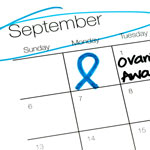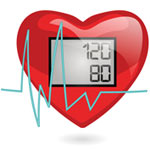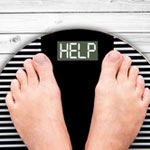Why You Keep Overeating and How to Stop

It happens at all times of day and night—you get those sudden cravings that seem uncontrollable and the next thing you know you’re chowing down until the buttons on your pants are threatening to pop off. But what exactly is making you overindulge and can you do anything about it? Read on to learn what factors might be causing your overeating and how to take control of your diet again…

1 – Sugar and Fat are Addictive
You may know people who joke about being addicted to junk food. In fact, you may be one of those people yourself. But in reality junk food addiction is no laughing matter. Sugar and fat actually are addictive substances that can control your behavior.
Eating sugary and fatty foods actually stimulates endorphins, those chemicals in your brain that cause feelings of pleasure. This makes you want more to increase and maintain those pleasurable feelings. Meanwhile dopamine is released by the brain, making you crave those foods even more. The more you eat the more your body craves until you can no longer control your appetite for sugar filled and fattening foods.
Beat your sugar addiction by limiting your intake or quitting sugar completely. Use natural sweeteners to give yourself the taste of sugar without the addictive qualities. Add more foods that are naturally low in sugar and fat to your diet. As your body gets used to these healthier foods it will begin to crave them more and fatty, sugary foods less.
2 – You Eat Too Much Out of Habit
Weight gain occurs when you eat more calories than you burn. If you continue to eat more calories than you are burning your body gets used to it and you end up overeating out of habit. Habitual overeating will actually make you feel as though you are hungry when you aren’t. Many people begin to habitually overeat as children. They grow up observing this behavior and continue with the habit into adulthood. The cycle continues when they have kids of their own who habitually overeat.
The good news is that once you realize you’re overeating out of habit you can start to do something about it. Habits are part of our daily lives and take some work to break, but they can be overcome with some knowledge and effort. So how do you break the habit of overeating?
First, if you don’t already know what your daily calorie intake should be, find out. It’s easy to overeat when you aren’t sure just how much you should be taking in. Step one is to speak to your doctor or find a reliable source online that can tell you approximately how many calories you should be eating. Your age, gender, current weight, ideal weight, and activity level will all factor into your appropriate daily calorie intake.
Next, do the research to find out how many calories are in the foods you usually eat. You may be surprised to find out just how many calories are in your favorite foods, even the low-fat versions. If you exercise regularly, you will be able to eat more calories since your body will be burning more. Just be certain to cut back on your calorie intake when you’re less active.
3 – You Eat to Feel Better Emotionally
Do you find yourself craving cookies or ice cream after a bad day? Do you reach for fatty snacks to comfort you after a fight with your partner? Emotional eating is what happens when you eat food to make yourself feel better. Emotional eaters reach for comfort foods the way that smokers reach for a cigarette when they’re stressed out. Eating makes them feel calmer and more in control after an emotional upset, and so the habit of overeating becomes addictive.
If you’re an emotional eater, you have a different relationship with food then many of the people around you. Because of this, your friends and family might fail to understand why you keep overeating. As mentioned above, sweet foods cause your body to release chemicals that lift your mood. So it makes sense that you reach for them when feeling low.
The key is to begin redefining your relationship with food. If you reach for unhealthy foods whenever you’re feeling low you will only reinforce the habit. To change your relationship with food, you don’t have to quit eating sugary or fattening foods completely. Instead, indulge in a slice of your favorite pie, eat a plate of manicotti, but do it occasionally and as a celebration. Training yourself to associate food with happy occasions instead of sad ones can help you stop overeating.
4 – You Aren’t Getting Adequate Sleep
There is a definite connection between sufficient sleep and healthy weight. Going without adequate sleep makes you feel cranky and easily overwhelmed. This can lead to poor diet choices. It’s easy to justify eating an unhealthy meal or snack when you’re feeling tired and stressed out.
In addition, you’re more likely to rely on caffeinated drinks to get you through the day. Coffee, while not high in calorie by itself, can pack a caloric punch when cream, milk, and sugar are added. And other caffeinated beverages like sodas and energy drinks offer empty calories and make you even more tired when you crash.
A hormone called leptin may also be to blame for overeating among sleep deprived persons. Leptin is released by a body’s fat cells at night in order to suppress appetite. When a person sleeps less this means less leptin is released which could result in a stronger appetite leading to overeating.
Curb your overeating by getting enough sleep at night. If you can’t get in enough hours at night, supplement by taking quick, refreshing power naps.
5 – You’re Waiting too Long to Eat
Eating three meals a day is standard for many people. But sticking to the traditional breakfast, lunch, dinner routine may be causing you to overeat. When you eat and digest food it actually increases your resting metabolic rate. In other words, your body burns more calories just performing basic functions when you are consistently feeding it.
Eating more, smaller, (and of course, healthier) meals a day can actually curb your cravings to overeat. When you only eat three (or less) meals per day, you go through longer stretches of not eating. This can make you feel hungrier, even though that additional hunger might be psychological.
It’s much easier to overeat when you haven’t had food in a while. So don’t starve yourself when dieting or make yourself go through long periods of the day without food. Instead, eat five or six small meals throughout the day and always have healthy snacks on hand for any mid-meal cravings that pop up.
You might also be interested in...
-
 6 Foods That Feed Your Brain
6 Foods That Feed Your Brain
-
 6 Things To Give Up This Year
6 Things To Give Up This Year
-
 7 Common Relationship Deal-Breakers
7 Common Relationship Deal-Breakers
-
 7 Facts Women Should Know About Heart Disease
7 Facts Women Should Know About Heart Disease
-
 When You Already Feel Like Giving Up On Your Resolutions
When You Already Feel Like Giving Up On Your Resolutions
-
 Amazing Tips To Help You Get Through Allergy Season
Amazing Tips To Help You Get Through Allergy Season
-
 Anti-Aging Tips And Tricks
Anti-Aging Tips And Tricks
-
 Are Protein Shakes A Healthy Choice?
Are Protein Shakes A Healthy Choice?
-
 Are We More Stressed Than the Rest of the World
Are We More Stressed Than the Rest of the World
-
 Are You Ruining Your Relationship
Are You Ruining Your Relationship
-
 Are You Socially Awkward?
Are You Socially Awkward?
-
 Attitude Of Gratitude
Attitude Of Gratitude
-
 Beating Work Burnout is Easier than You Think
Beating Work Burnout is Easier than You Think
-
 Benefits Of Yoga And Meditation
Benefits Of Yoga And Meditation
-
 Beware Of Relationship Killers
Beware Of Relationship Killers
-
 Big Cities Surprisingly Great for Outdoorsy People
Big Cities Surprisingly Great for Outdoorsy People
-
 How To Boost Your Self Confidence
How To Boost Your Self Confidence
-
 Can Saying You’re Sorry Save Your Life?
Can Saying You’re Sorry Save Your Life?
-
 Can White Wines Be Healthy Too
Can White Wines Be Healthy Too
-
 Changing Careers In Your 40s
Changing Careers In Your 40s
-
 Divorced, But Are You Ready To Start Dating Again?
Divorced, But Are You Ready To Start Dating Again?
-
 Do You Fight Like Other Couples?
Do You Fight Like Other Couples?
-
 When you don't have a green thumb
When you don't have a green thumb
-
 8 PreWorkout Meals To Maximize Results
8 PreWorkout Meals To Maximize Results
-
 Financial Benefits Of Co-Habitation vs Marriage
Financial Benefits Of Co-Habitation vs Marriage
-
 Financial Tips To Follow During And After Divorce
Financial Tips To Follow During And After Divorce
-
 Five Ways To Lead A Regret-Free Life
Five Ways To Lead A Regret-Free Life
-
 Why Your Friends Should Be Jealous If You’re 30-Something And Single
Why Your Friends Should Be Jealous If You’re 30-Something And Single
-
 Can A Full Moon Really Affect People?
Can A Full Moon Really Affect People?
-
 Getting a Life Insurance Quote Without Getting a Medical Exam
Getting a Life Insurance Quote Without Getting a Medical Exam
-
 Health Benefits Of Almond Milk
Health Benefits Of Almond Milk
-
 The Health Benefits Of Avocado
The Health Benefits Of Avocado
-
 Health Benefits Of Cinnamon
Health Benefits Of Cinnamon
-
 How To Choose A Multivitamin?
How To Choose A Multivitamin?
-
 How To Make The New Year The Best One Yet
How To Make The New Year The Best One Yet
-
 How To Prepare For Your Next Interview
How To Prepare For Your Next Interview
-
 Is a Co-worker Making You Hate Your Job?
Is a Co-worker Making You Hate Your Job?
-
 Is The Ketogenic Diet Safe?
Is The Ketogenic Diet Safe?
-
 Is Music The Antidote For Depression
Is Music The Antidote For Depression
-
 Is Your Diet Making You Feel More Stress?
Is Your Diet Making You Feel More Stress?
-
 How To Keep Your Facebook Safe From Scammers
How To Keep Your Facebook Safe From Scammers
-
 Life Insurance Companies Offer Protection
Life Insurance Companies Offer Protection
-
 Living With Fibromyalgia
Living With Fibromyalgia
-
 How To Look Better Than Ever At 40
How To Look Better Than Ever At 40
-
 More Big Cities Surprisingly Great for Outdoorsy People
More Big Cities Surprisingly Great for Outdoorsy People
-
 Natural Remedies For Acid Reflux
Natural Remedies For Acid Reflux
-
 No Medical Exam Life Insurance—Simple Application
No Medical Exam Life Insurance—Simple Application
-
 10 Olympic Sports That Didn’t Make the Cut
10 Olympic Sports That Didn’t Make the Cut
-
 Outrageous Facts about U.S. Presidents
Outrageous Facts about U.S. Presidents
-
 Ovarian Cancer--The Silent Killer
Ovarian Cancer--The Silent Killer
-
 Overcoming Frustration
Overcoming Frustration
-
 How To Get Relief From Credit Card Debt
How To Get Relief From Credit Card Debt
-
 Is There A Risk of Heart Disease Due To Drinking?
Is There A Risk of Heart Disease Due To Drinking?
-
 Shocking Food Facts that May Change the Way You Eat
Shocking Food Facts that May Change the Way You Eat
-
 Sick Of Running? 5 Cardio Routines You Should Try Instead
Sick Of Running? 5 Cardio Routines You Should Try Instead
-
 Smart Tips for Getting Paid What You Really Deserve
Smart Tips for Getting Paid What You Really Deserve
-
 Strange Laws You Don't Even Know You're Breaking
Strange Laws You Don't Even Know You're Breaking
-
 The Singles’ Guide To Life Insurance
The Singles’ Guide To Life Insurance
-
 Things To Remember When Buying Life Insurance
Things To Remember When Buying Life Insurance
-
 Top 5 Things You Need To Know About Life Insurance
Top 5 Things You Need To Know About Life Insurance
-
 Top 6 Factors That Destroy Your Credit Score
Top 6 Factors That Destroy Your Credit Score
-
 Top Ten Health Tips For Active Women Over 50
Top Ten Health Tips For Active Women Over 50
-
 Treating Menopause Symptoms With Alternative Medicine
Treating Menopause Symptoms With Alternative Medicine
-
 Want To Know How Your Interview Went? Think Of It Like A First Date…
Want To Know How Your Interview Went? Think Of It Like A First Date…
-
 What Every Woman Should Know About Breast Cancer
What Every Woman Should Know About Breast Cancer
-
 What Is Ruining Your Workout
What Is Ruining Your Workout
-
 What Most 30–Somethings Wish They’d Known in Their 20s
What Most 30–Somethings Wish They’d Known in Their 20s
-
 Whats Really To Blame For Your Bad Mood
Whats Really To Blame For Your Bad Mood
-
 Why You Keep Overeating and How to Stop
Why You Keep Overeating and How to Stop
-
 Why You Need To Talk About Life Insurance
Why You Need To Talk About Life Insurance
-
 You Can't Afford to Believe These Women's Health Myths
You Can't Afford to Believe These Women's Health Myths
-
 5 Plants To Keep In Your Bedroom
5 Plants To Keep In Your Bedroom
-
 Five Simple Ways To Protect Your Retirement
Five Simple Ways To Protect Your Retirement
-
 The Best Ways To Cover Gray Hair
The Best Ways To Cover Gray Hair
-
 5 Hidden Causes Of High Blood Pressure
5 Hidden Causes Of High Blood Pressure
-
 10 Steps To Get Through The Holidays Stress-Free
10 Steps To Get Through The Holidays Stress-Free
-
 5 Ways To Break A Bad Habit
5 Ways To Break A Bad Habit
-
 The 5 Benefits Of A Veterans Home Loan
The 5 Benefits Of A Veterans Home Loan
-
 Top 5 Prevention Tips For Heart Disease And Stroke
Top 5 Prevention Tips For Heart Disease And Stroke
-
 5 Surprising Facts About Low-Carb Diets
5 Surprising Facts About Low-Carb Diets
-
 7 Ways To Live A Happier Life
7 Ways To Live A Happier Life
-
 6 Tips To Be More Productive
6 Tips To Be More Productive
-
 7 Steps To Help Someone Who Is Grieving
7 Steps To Help Someone Who Is Grieving
-
 4 Reasons Why Your Diet Resolutions May Be Counterproductive
4 Reasons Why Your Diet Resolutions May Be Counterproductive
-
 Deciding On Braces After 40
Deciding On Braces After 40
-
 Why A Massage May Be Helpful For Back Pain
Why A Massage May Be Helpful For Back Pain
-
 How To Have Self-Compassion
How To Have Self-Compassion
-
 How To Stay Productive When You Don’t Feel Like it
How To Stay Productive When You Don’t Feel Like it
-
 Foods To Eat When You’re Feeling Stressed
Foods To Eat When You’re Feeling Stressed
-
 How Helping Others Can Make You Happier
How Helping Others Can Make You Happier
-
 Why You Don’t Have To Fear Fat When Dieting
Why You Don’t Have To Fear Fat When Dieting
-
 6 Things You Should Do To Live Without Regret
6 Things You Should Do To Live Without Regret
-
 How To Create Your Own Happiness
How To Create Your Own Happiness
-
 How To Get Immediate Stress Relief
How To Get Immediate Stress Relief
-
 Why It May Be Time To Make Some Changes
Why It May Be Time To Make Some Changes
-
 Why You May Want To Sleep On Your Left Side
Why You May Want To Sleep On Your Left Side
-
 4 Health Symptoms You Should Never Ignore
4 Health Symptoms You Should Never Ignore
-
 Dos And Don’ts Of Job Interviews
Dos And Don’ts Of Job Interviews
-
 How You Can Benefit From Showing A Little Love
How You Can Benefit From Showing A Little Love
-
 Can Debt Affect Your Health?
Can Debt Affect Your Health?
-
 What Women In Their 50s Know
What Women In Their 50s Know
-
 Hidden Reasons For Night Sweats
Hidden Reasons For Night Sweats
-
 5 Simple Lung Cancer Prevention Tips
5 Simple Lung Cancer Prevention Tips
-
 Why You Should Get Out Of Your Comfort Zone Now
Why You Should Get Out Of Your Comfort Zone Now
-
 7 Tips To Keep Runners Safe
7 Tips To Keep Runners Safe
-
 How To Stop Emotional Eating Now
How To Stop Emotional Eating Now
-
 Reach Your Potential In 4 Steps
Reach Your Potential In 4 Steps
-
 5 Ultimate Weight Loss Hacks
5 Ultimate Weight Loss Hacks
-
 Can Social Media Help With Weight Loss
Can Social Media Help With Weight Loss
-
 How A Good Impression Can Change Everything
How A Good Impression Can Change Everything
-
 Must-Know Travel Tips If You Want To Stay Safe
Must-Know Travel Tips If You Want To Stay Safe
-
 Three New Ways To Make Big Changes
Three New Ways To Make Big Changes
-
 The Hidden Benefits Of Ginger
The Hidden Benefits Of Ginger
-
 5 Tricks To Slim Down Fast
5 Tricks To Slim Down Fast
-
 How To Finally Wake Up Better
How To Finally Wake Up Better
-
 5 Chemical-Free Ways To Keep Skin Young
5 Chemical-Free Ways To Keep Skin Young
-
 The Secret Benefits Of Salt
The Secret Benefits Of Salt
-
 Why Be An Organ Donor?
Why Be An Organ Donor?
-
 How To Relieve Stomach Ulcers Fast
How To Relieve Stomach Ulcers Fast
-
 Disaster Relief Do’s And Don’ts
Disaster Relief Do’s And Don’ts
-
 How To Say Goodbye To A Loved One
How To Say Goodbye To A Loved One
-
 4 Tricks To Prevent A Cybercrime Attack
4 Tricks To Prevent A Cybercrime Attack
-
 The Dos And Don’ts Of Getting A Tattoo
The Dos And Don’ts Of Getting A Tattoo
-
 What To Do When Hearing Loss Strikes
What To Do When Hearing Loss Strikes
-
 How Auto Ship Programs Keep Scamming People
How Auto Ship Programs Keep Scamming People
-
 How To Decrease Stress And Increase Productivity
How To Decrease Stress And Increase Productivity
-
 Unique Relief For Chronic Neck Pain
Unique Relief For Chronic Neck Pain
-
 Ransomware–What It Is And How To Avoid Attack
Ransomware–What It Is And How To Avoid Attack
-
 Five Reasons To Drink More Tea
Five Reasons To Drink More Tea
-
 5 Major Life Events That May Require Life Insurance
5 Major Life Events That May Require Life Insurance
-
 6 Reasons Newlyweds Should Consider Life Insurance
6 Reasons Newlyweds Should Consider Life Insurance
-
 How Long Does It Take to Get a Life Insurance Policy?
How Long Does It Take to Get a Life Insurance Policy?
-
 How Long Does It Take to Get Life Insurance Money?
How Long Does It Take to Get Life Insurance Money?
-
 What You Need To Know About Mortgage Assistance Programs
What You Need To Know About Mortgage Assistance Programs
-
 How to Build a Better Resume: 7 Helpful Tips
How to Build a Better Resume: 7 Helpful Tips
-
 4 Things Women Should Do During Breast Cancer Awareness Month
4 Things Women Should Do During Breast Cancer Awareness Month
-
 10 Ways to Get More Out of Life
10 Ways to Get More Out of Life
-
 Who Owns Globe Life and Accident Insurance Company?
Who Owns Globe Life and Accident Insurance Company?
-
 Can I Buy Life Insurance Online?
Can I Buy Life Insurance Online?
-
 Cancelling My Life Insurance. What are My Options?
Cancelling My Life Insurance. What are My Options?
-
 Can Life Insurance be Purchased on Anyone by Anyone?
Can Life Insurance be Purchased on Anyone by Anyone?
-
 Understanding Insurance Claims: Complex Causes of Accidental Death
Understanding Insurance Claims: Complex Causes of Accidental Death
-
 How Can I Sell My Life Insurance Policy?
How Can I Sell My Life Insurance Policy?
-
 Checking Your Insurance Coverage Before Traveling Abroad: What to Know
Checking Your Insurance Coverage Before Traveling Abroad: What to Know
-
 Can I Convert My Term Life Insurance into a Whole Life Insurance Policy?
Can I Convert My Term Life Insurance into a Whole Life Insurance Policy?
-
 Should I Buy Enough Life Insurance to Pay Off My Mortgage?
Should I Buy Enough Life Insurance to Pay Off My Mortgage?
-
 What Is Whole Life Insurance?
What Is Whole Life Insurance?
-
 Beyond Active Duty: Life Insurance Options for US Veterans
Beyond Active Duty: Life Insurance Options for US Veterans
-
 The Risk of Having a Stroke for People Under 40
The Risk of Having a Stroke for People Under 40
-
 Is Drowning Considered an Accidental Death for Insurance Purposes?
Is Drowning Considered an Accidental Death for Insurance Purposes?
-
 How Long is a Term Life Insurance Policy?
How Long is a Term Life Insurance Policy?
-
 Tips for Choosing a Life Insurance Beneficiary
Tips for Choosing a Life Insurance Beneficiary

 Insurance products are available in New York from
Insurance products are available in New York from  Insurance products are available in your state from
Insurance products are available in your state from 





























































































































































